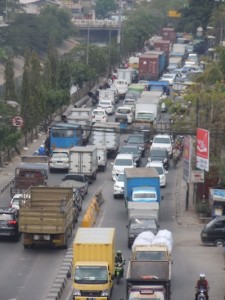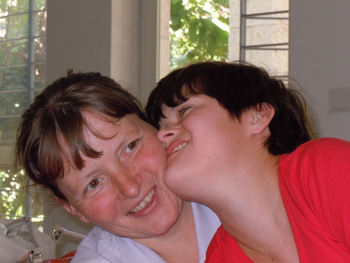
Claudiaexpat recently left Indonesia, and is temporarily living between Switzerland and Italy. In this article, she discusses the concept of normality abroad.
Note: normality is a relative concept. In talking about normality here, I refer to my personal experience. I am well aware that what is normal for me might not be for someone else, but since I am reflecting on my own experience, I have to set a starting point that stems from my cultural background. Someone else might identify with it, others might have a totally different definition of normality, but it is my hope that all will identify with the basic assumption that living abroad, in often very different cultures from one’s own, challenges us in a wide variety of ways.
A dear friend of mine has been working in hardship postings for many years. Her latest one was in Afghanistan: two years of tension, violence, risk and mourning. When at last she returned to Italy for a break, she changed her Whatsapp status to ‘Enjoying normality’.
This struck me, and got me thinking about the concept of normality abroad. I asked myself whether it’s possible to build and maintain normality while embracing a life abroad and spending extended periods of time in surroundings totally different from what we are used to. And above all, I wondered, what does normality abroad mean?
 My Jerusalem experience taught me a lot about this issue: I very quickly learnt that everything that was considered ‘normal’ in the western world, was as far from ‘my normal’ as you could imagine in my new host city.
My Jerusalem experience taught me a lot about this issue: I very quickly learnt that everything that was considered ‘normal’ in the western world, was as far from ‘my normal’ as you could imagine in my new host city.
After four and a half years during which even choosing what restaurant to go to was considered a political statement, I remember seriously asking myself whether I would be able to return to what I consider normality. For example, would I ever again be able to think of simple outings with friends as what they were, rather than as events loaded with hidden meaning, value judgements, risks and favours?
It must be said, though, that Jerusalem embodies a concentration of human folly which is present in many areas of ordinary life, the like of which I had never seen before, and which I don’t think I will encounter anywhere else.
 In Jakarta, ‘abnormality’ was determined by the crazy traffic: going out to friends for dinner, to the cinema on a Friday evening, or out of town for the weekend, always took an enormous effort because the omnipresent traffic jams forced you to be blocked for hours in your car or in a bus, leaving you wiped out and destroying your enthusiasm.
In Jakarta, ‘abnormality’ was determined by the crazy traffic: going out to friends for dinner, to the cinema on a Friday evening, or out of town for the weekend, always took an enormous effort because the omnipresent traffic jams forced you to be blocked for hours in your car or in a bus, leaving you wiped out and destroying your enthusiasm.
Recently I left Jakarta, and am now living between Italy and Switzerland, where my husband is temporarily working. This ‘European’ phase has gradually brought me back to situations I had forgotten all about. For years I hadn’t experienced the joy of treating myself (often and abundantly) to things which in my recent postings would have entailed risk, foolhardiness or effort.
I do not mean to belittle the fascination and enrichment offered by the fact of having to adapt to a completely different way of life. I have always been, and will always be, convinced that in order to become a complete person, you need to be put to the test outside your comfort zone, and that there is nothing more enriching and educational than having to constantly learn to function in different countries.
Maybe juggling between different ideas of normality is part of this process. Absorbing the feeling of risk in Tegucigalpa, accepting as given the religious and political follies of Jerusalem, and learning to boldly take on the traffic in Jakarta, making it a part of your routine, are all elements which make you more flexible and multifaceted.
There is, however, the risk of not being able to settle back into the normality of your culture of origin. Enter reverse culture shock – the culture shock that hits you when you move back to your home country after years of immersion in different cultures…
 Because while I enjoy simple pleasures I had forgotten, such as going to the cinema on foot, waiting for a bus I know will arrive soon, wandering round market stalls fearlessly tasting everything I see, or simply blending in, I also am aware of the experiences of other expat women who have recently come back to Europe after years of living in totally different cultures.
Because while I enjoy simple pleasures I had forgotten, such as going to the cinema on foot, waiting for a bus I know will arrive soon, wandering round market stalls fearlessly tasting everything I see, or simply blending in, I also am aware of the experiences of other expat women who have recently come back to Europe after years of living in totally different cultures.
Many tell me that after a while they get bored, that there’s a high price to pay for this normality. It means saying goodbye to the relentless adrenalin rush you have when you are living in a cultural context that you have to decipher from dawn to dusk, it means leaving behind the constant risks which bring into play resources you didn’t even know you had, it means relinquishing the fulfilment of facing new challenges every day.
It’s a fascinating subject which I had never paused to think about until I found myself having to face a significant period of time in Europe. I am curious to know how I will feel in a few months. Meanwhile, please share your own experiences in our Facebook group!
Claudia Landini (Claudiaexpat)
Geneva, Switzerland
January 2019
All pictures ©ClaudiaLandini
except the main one by Clem Onojeghuo
Translated from Italian by Paola Fornari




